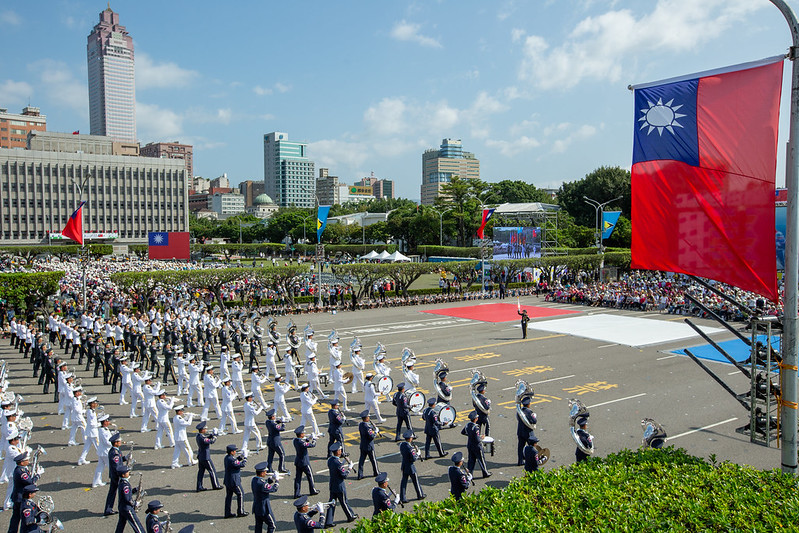The leaders of the world’s two most powerful countries will meet in Florida on April 6-7. Among the many issues they will discuss, Taiwan’s status and longstanding American commitments to it are expected to be raised. We look at what President Xi is likely to ask for, and whether he can hope to obtain any concessions from the American president.
As U.S. President Donald Trump and his Chinese counterpart, Xi Jinping, prepare to meet at the Mar-a-Lago resort in Palm Beach, Florida, on Thursday and Friday this week, many have wondered whether Mr. Xi will press the issue of Taiwan and, if he does so, whether he can obtain anything from Mr. Trump.
What is almost certain is that Mr. Xi will raise the matter, if only to assess where Mr. Trump stands on the status of the democratic island-nation. At minimum, Mr. Xi hopes to leave Florida with assurances that Mr. Trump is no longer questioning the wisdom, if we can call it that, of the “one China” policy, a longstanding U.S. policy that, as president-elect, Mr. Trump said it might no longer be advisable to follow. Coming on the heels of a precedent-setting 10-minute telephone conversation with Taiwanese President Tsai Ing-wen in early December 2016, Beijing certainly had reason to believe that the political maverick could indeed upend the very foundations of the trilateral relationship that had existed since Washington established official diplomatic relations with the People’s Republic of China (PRC) in 1979.
China’s apprehensions were somewhat assuaged after Mr. Trump, in a fence-mending telephone conversation with Mr. Xi in February, recommitted to abiding by the “one China” policy, which, as we cannot repeat often enough, merely states that the U.S. acknowledges Beijing’s position that there is only one China which Taiwan is a part of.
For all intents and purposes, after a rather testy start it can be stated that when it comes to Taiwan, the U.S.-China relationship is back at square one — a U.S. commitment to vague phrasing, in the form of the “one China” policy and the Three Communiqués, that keeps Beijing moderately happy, and continued support for Taipei, under the Taiwan Relations Act and the Six Assurances, that injects enough uncertainty so that Beijing will be reluctant enough to avoid risking everything by unilaterally changing the “status quo” in the Taiwan Strait by attacking Taiwan militarily, for example.
Signs that we are back to where we were pre-Mr. Trump’s brief chat with President Tsai and pre-“let’s question the usefulness of the ‘one China’ policy” could not have been clearer than at a background press briefing by senior U.S. officials ahead of the summit this week:
Q. President Xi reportedly wants to hear President Trump officially recognize Taiwan as a province of China. What will his message be on that and on the South China Sea?
SENIOR ADMINISTRATION OFFICIAL: Well, the President has reaffirmed our adherence to the one-China policy — that is our one-China policy that’s based on the three joint communiques with China, as well as the Taiwan Relations Act. That is longstanding policy of the United States; that is a policy that the President has reaffirmed. So I don’t anticipate some kind of surprising deviation from that [italics added].
It’s also almost certain that Mr. Xi will express his “regret” at President Tsai’s refusal to recognize the so-called “1992 consensus” and “one China,” and that he may furthermore do his utmost to depict the Taiwanese leader as irresponsibly intransigent. Whether Mr. Trump buys into that will be largely contingent on the briefings he receives from his experts on the issue. His brief conversation with Ms. Tsai was hardly sufficient for him to have taken the full measure of her character, and in that aspect she is at a disadvantage against Mr. Xi, who will have the benefit of two days to shape Mr. Trump’s opinion of him.
As always, the Chinese leader is also expected to do his utmost to convince the American president that the U.S. should cease arms sales to Taiwan, especially amid chatter that Washington could sometime this year release a new arms package estimated at more than US$1 billion. Mr. Xi’s chances of succeeding on that front, however, are judged to be slim.
Mr. Xi’s ability (and willingness, presumably) to pressure Mr. Trump on Taiwan will be constrained by the more pressing need to build a stable and positive relationship with Washington. Although Beijing (along with international media) constantly states that Taiwan is a “core issue,” if not the most important issue, in reality China has far greater challenges to deal with, chief among them its economy. Thus, notwithstanding the rhetoric, it is inconceivable that Mr. Xi would risk derailing the Sino-American relationship over Taiwan, especially when cross-Strait relations, though somewhat chilly, are nowhere near the crisis point that would compel Beijing to take drastic — and certainly counterproductive in the strategic sense — action. Therefore, we can expect that Mr. Xi will make his point, repeat the usual language on Taiwan, and move on to other, more pressing matters such as trade and North Korea, issues that Mr. Trump is much keener to discuss with his Chinese counterpart.
You might also like
More from China
A Few Thoughts on the Meng-Spavor-Kovrig Exchange
It is hard not to see this weekend’s developments as a victory for China and the creation of a world …
In Memoriam: Lee Teng-Hui and the Democracy That He Built
The former president of Taiwan is the incontestable refutation of the belief that history is merely an impersonal force, that …
The Making of ‘Insidious Power: How China Undermines Global Democracy’
A new book released on July 30 takes a close look at the agencies and mechanisms of CCP 'sharp power' …









